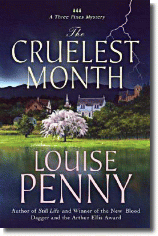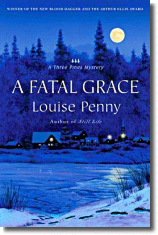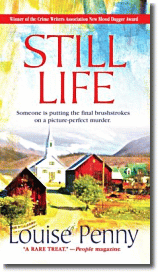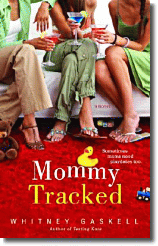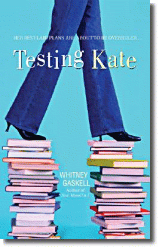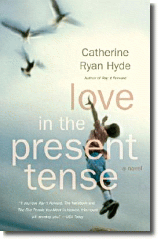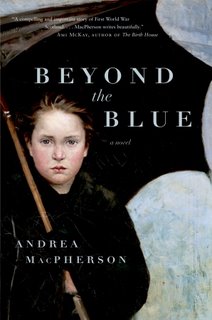 Editions, 2008).
Editions, 2008).Earlier this year she put the Page 69 Test to Beyond the Blue; here she imagines the dream cast for a film adaptation of the novel:
I’ve always thought about novels in a cinematic way: pan to the long, lingering sun-bleached fields. Tight focus on the way the loom whirs and spins, how the hand is acutely aware of the possibility of danger. But, in most cases, I don’t think about the characters as actors. Why? Because I imagine them as the characters they are — who they appear to be on the page.Read an excerpt from Beyond the Blue and learn more about MacPherson's work at her official website.
So, I've thought a lot about who might play my characters in Beyond the Blue. First, it takes place in Dundee, Scotland in 1918. I need actors who might be chameleons, able to slip into eras and countries with ease. Then, who resembles them the most, in appearance, yes, but also in spirit? I have a relatively large cast, so my mind was whirring.
Morag: matriarch. Full of quiet, dignified hope. Older, but still handsome, well-spoken. Strong. More than anything, strength of character and vision. So it had to be Meryl Streep. I can imagine her in one of these bleak weaving rooms, tending looms but looking off in the distance — in that way she has — and you could see below the surface, all the shimmering hope just there.
Caro: eldest daughter. The ‘pretty’ one who wants, more than anything, a different sort of life than her mother has. Smarter than she lets on. Unafraid. Ambitious. Here, I see Rachel McAdams or Claire Danes. For their mix of beauty, intelligence and something that edges close to shyness, something that might be surprising.
Wallis: younger daughter. She is the one who most searingly feels the burdens of family and responsibility. Who is caught in the past, in the years when she felt she was really, truly happy. Still in love with a childhood friend, long gone to Ireland. I’d love to see Sarah Polley here. She’s beautiful, but not in the expected way; she seems determined, which is essential to Wallis’ character.
Imogen: orphaned, abandoned niece. Ethereal, haunted, distrustful of her own perceptions of the world around her. Imogen is having visions of her dead mother, and is uncertain how to cope with this grief. Who might play such a character? Dominique Swain or Thora Birch. Either has that quality — the only word to capture it, quality — that so defines Imogen and her journey.
Brigid: Morag’s dead sister, Imogen’s dead mother. Incredibly beautiful, fragile, complex. Brigid appears to Imogen as a ghostly essence, and appears in the earlier years of the story. This would have to be someone as ethereal as Imogen; a character certain of her wants; someone who changes the world around her. Cate Blanchett, Cate Blanchett, Cate Blanchett.
And then there are the men.
Oliver: Morag’s brother-in-law; Brigid’s husband; Imogen’s lost father. A man who walks away from a life he no longer recognizes. Handsome, charming, liked by almost everyone (not Morag, who is wary, aware of his flaws and his abandonment). The prodigal who returns. I think Clive Owen or Patrick Dempsey would be good fits — both have the ability to project emotion, to keep things bottled in in that inarticulate way, which would suit Oliver perfectly.
Desmond: mill owner. Destined-to-be-doomed lover of Caro. Callous. Unconcerned. Aware of his power and unafraid to exploit it, often. Gabriel Byrne would be lovely here: you can believe that women would flock to him, not only because he is attractive, but, more importantly, because you believe in his status, his ability to control any situation.
Godfrey: traveling healer. Slick. Untrustworthy. Something just off centre. A perfect match to Willem Dafoe.
There are other characters as well — again, that unwieldy cast: children; a dark, tragic woman who puts her head in a stove, a stray lover or two. But these are the ones who cement the novel for me, the ones I see in those sweeping glances of the cobbled streets of Dundee.
Read Linda L. Richards' 2007 interview with MacPherson in January Magazine.
The Page 69 Test: Beyond the Blue.
--Marshal Zeringue
